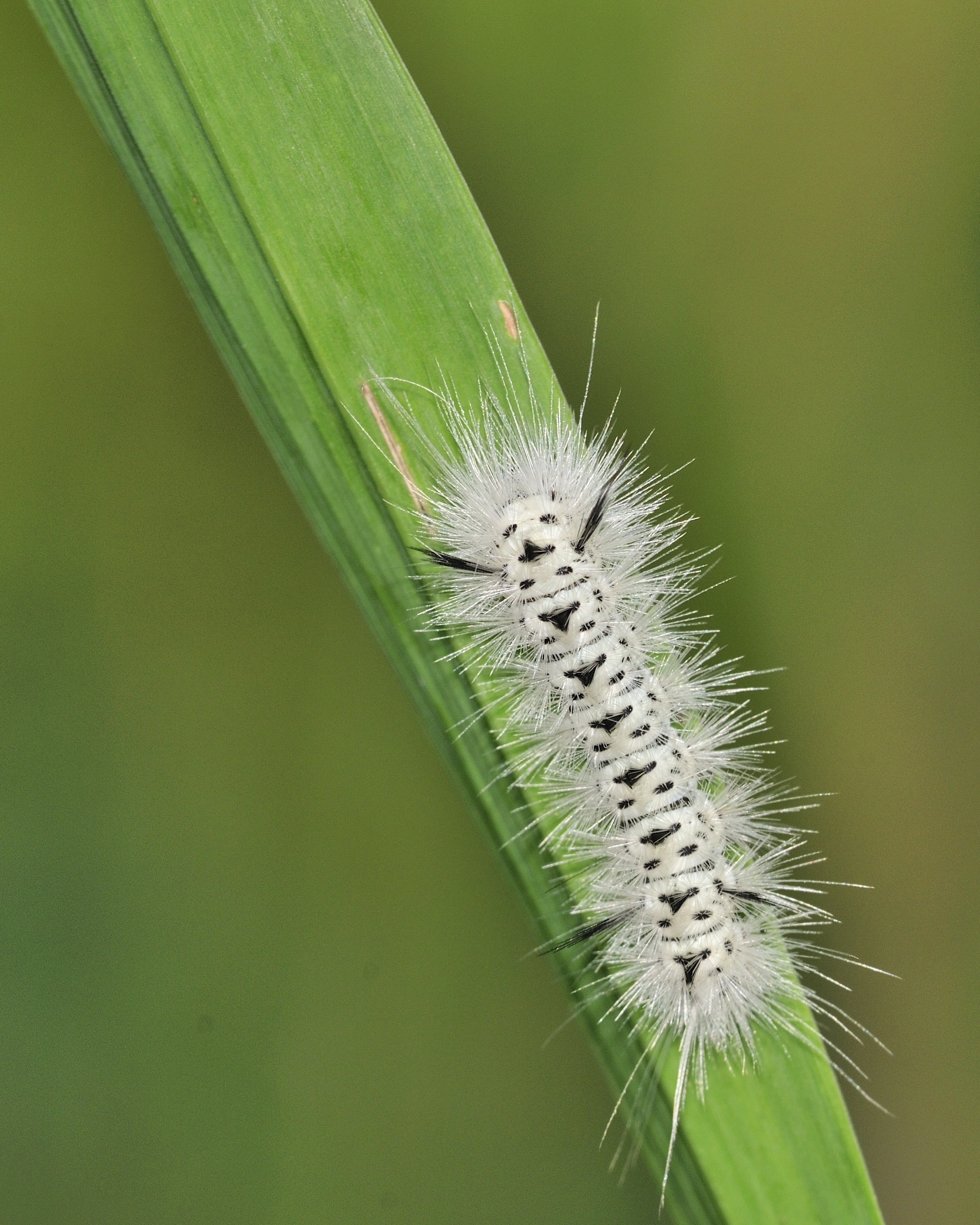The Hickory Tussock Moth Caterpillar is white and fluffy and has black chain-like markings on its back. It also has long black hairs that stick out from areas near the front and back of the caterpillar.1 It grows to a length of about 4.5 centimeters.1
Why should I be concerned about Hickory Tussock Moth Caterpillars?
Touching these caterpillars can cause a rash similar to that caused by nettles or poison ivy. Symptoms can range from slight reddening of the skin to a burning sensation with swelling and pain.2 Some people may experience a headache, nausea or an allergic reaction.2
What should I do if I have touched one of these caterpillars?
The Health Unit recommends that anyone who touches a Hickory Tussock Moth Caterpillar wash the affected area with soap and water as soon as possible. In the case of itching or swelling, apply calamine lotion and/or ice packs to the affected areas.2 Individuals who experience more generalized allergic reactions should seek medical advice from a doctor.
Where is the Hickory Tussock Moth caterpillar found?
The Hickory Tussock Moth Caterpillar is present in Southern Ontario from July to September, at which time it feeds on the leaves of hickory, walnut, ash, elm and oak trees in preparation for overwintering in its cocoon.1

